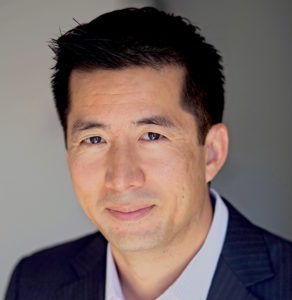The Unique Dangers of Harm OCD: Part 5 of a 5 article series on Harm OCD

One issue that suffers of Harm OCD should be aware of is the fact that many people are not well informed about this form of OCD, and often misinformed about OCD in general. As with many things that require experience and expertise, correctly diagnosing and understanding the nuances of how OCD develops, maintains itself, and how to treat it, is a specialization within the broader arena of mental health.

We are in a time in which mass shootings and gun violence are a particularly hot topic of debate and rightful concern at a political and societal level. If someone has unwanted thoughts (“obsessions”) of harming others in a way that may involve firearms and is understandably distressed by these thoughts, disclosing it to the wrong person may result in actual harm – to the sufferer.
Many excellent law enforcement professionals, legislators, educators, healthcare professionals, and even mental health professionals do not specialize in OCD, and may misunderstand these types of thoughts as actual viable threats to public safety.
Even well-meaning family members and ordinary citizens may easily hear about these types of thoughts, mistake them for real threats, call 911, and trigger an emergency response team or involuntary form of treatment to “ensure safety.” In doing so, this may actually result in trauma for a person already suffering with a very distressing form of OCD.
Consider as well the individual suffering from Pedophilic OCD. To the uninformed person, hearing that someone else has had sexual thoughts about a minor, might easily raise concern of an actual threat to the safety one’s own children. If a call is made to Child Protective Services reporting this concern, a very stressful investigation may ensue – one that might have been avoided if the thoughts were recognized as a form of Obsessive Compulsive Disorder.
This is of course very unfortunate and also why it is so important for those of us who are dealing with OCD and for OCD treatment specialists to inform others in the general public about the various ways OCD might present. We’d hate to think of someone already struggling with the discomfort and anxiety of unwanted Harm OCD thoughts to then also have to experience the potential trauma of involuntary treatment.
Perhaps more so than for people suffering from other forms of OCD, such as contamination fears, perfectionist or “not quite right” OCD, and religious/moral scrupulosity, these are issues that the person suffering from Harm OCD must be particularly aware of.
Getting help from informed OCD specialists
To ensure you’re working with a specialist that is well informed and has expertise in treating OCD, consider searching for providers through the International OCD Foundation.
Also, while Cognitive Behavior Therapy (CBT) is a large category of treatment approaches that are targeted, evidence-based, and effective for treating OCD, a more specific search for training and expertise in Exposure with Response Prevention will be even more helpful.
In addition, given that more people suffer with OCD than there are specialists to treat them – you might also see if there are therapists in other parts of your state who could work with you remotely by phone or secure videochat. This is an increasingly common practice, and can be a great alternative if there are not available specialists in your area.
Either way, Harm OCD, as much as all other forms of OCD, is certainly best addressed with the help of a specialized mental health provider, so definitely make sure to seek out the right resources.
This is the fifth and final article in our 5-part series on Harm OCD. For more information about different types of Harm OCD and the process of treatment in therapy, feel free to revisit parts one through four of the series:
Part 1 is a general description of the Harm OCD subtype.
Part 2 focuses on Pedophilic OCD.
Part 3 addresses Postpartum/Perinatal OCD
Part 4 discusses effective treatment for Harm OCD.

Martin Hsia, Psy.D. is the Clinical Director of CBT SoCal, and specializes in helping people with OCD, Anxiety, and Insomnia in Glendale, CA.
